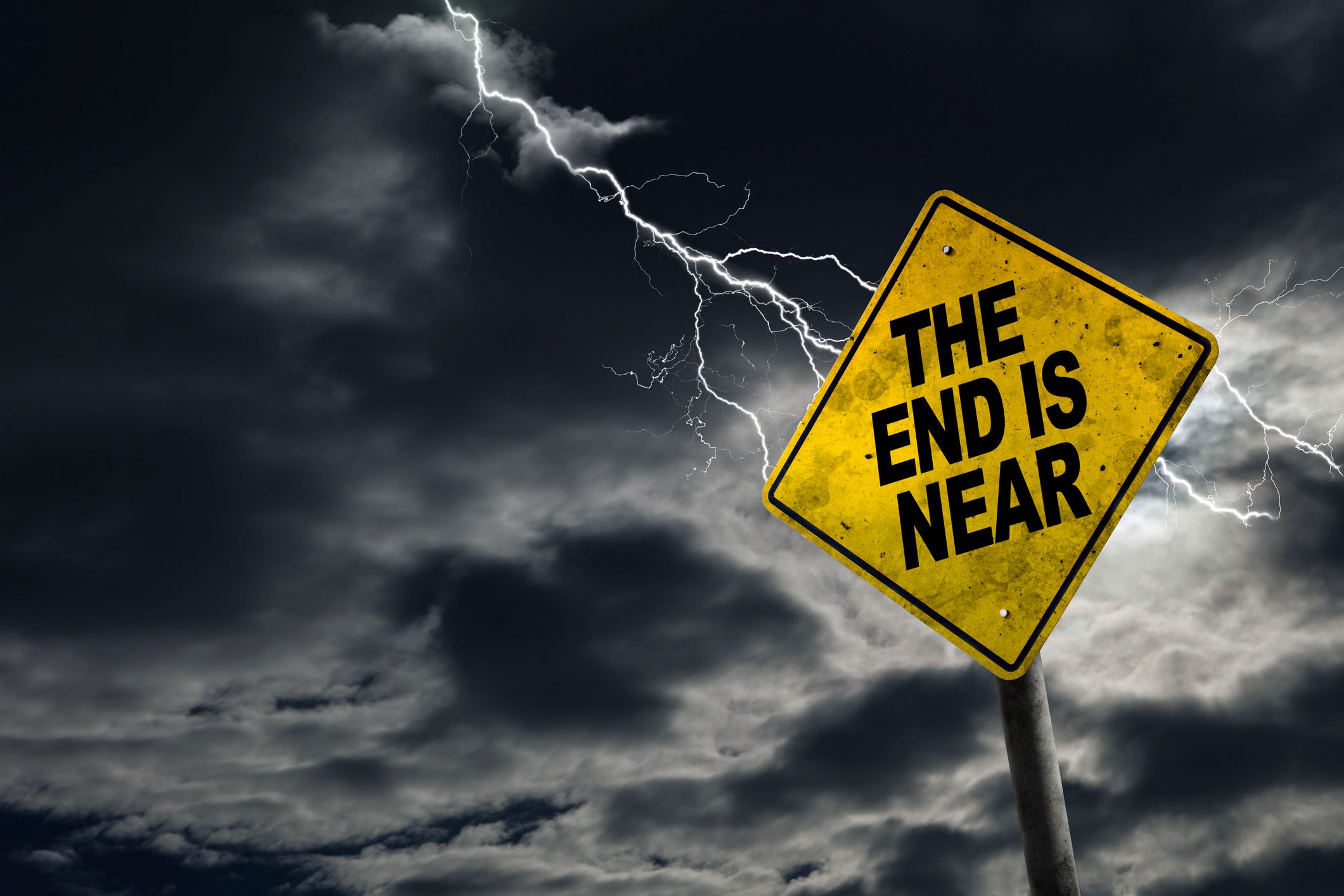
Ever wondered if there's any truth to those doomsday predictions that pop up every now and then? May 21st has been marked by some as the date when the world would end, sparking curiosity and skepticism alike. But what's the real deal behind this specific date? Yes, there are facts surrounding May 21st that shed light on why it became associated with the end of the world. From biblical interpretations to modern-day predictions, this date has seen its fair share of the spotlight. In this blog post, we're diving into the 11 most intriguing facts about the end-of-the-world prophecy linked to May 21st. Fasten your seatbelts, because this ride through history, science, and speculation is nothing short of fascinating. Ready to separate fact from fiction? Let's get started!
Key Takeaways:
- Don't believe everything you hear! Failed end-of-the-world predictions show the importance of critical thinking and skepticism before accepting information as truth.
- Doomsday predictions can cause anxiety and drastic actions. It's important to stay calm and think critically when faced with such prophecies.
Understanding May 21st as the End of the World
Many have speculated about the end of the world, with various dates proposed throughout history. May 21st gained notoriety due to a prediction by Harold Camping, a radio broadcaster and president of Family Radio, a California-based Christian radio network. He claimed that May 21, 2011, would be the date of the Rapture and Judgment Day, based on his interpretation of the Bible.
-
Harold Camping used mathematical calculations derived from his understanding of biblical prophecy to pinpoint May 21, 2011, as the beginning of the end.
-
Despite his confidence, May 21, 2011, passed without the catastrophic events Camping had predicted, leading to widespread skepticism and disappointment among his followers.
The Reaction and Aftermath
The prediction sparked a significant reaction worldwide, with followers spending millions on advertising the prophecy. After the date passed uneventfully, Camping and his ministry faced intense scrutiny and ridicule.
-
Camping later admitted he was mistaken and declared that his prediction was incorrect, stating that his attempt to predict a date was sinful.
-
Following the failed prediction, Camping revised his prophecy, claiming that May 21 had been a "spiritual" judgment day, and the actual physical end of the world would occur on October 21, 2011, which also did not happen.
Historical Context of End-of-the-World Predictions
End-of-the-world predictions are not new and have been part of human culture for centuries. These predictions often reflect societal anxieties and are interpreted from religious or astronomical events.
-
Throughout history, there have been numerous end-of-the-world predictions, including the Y2K scare in 2000 and the Mayan calendar ending in 2012, neither of which resulted in apocalypse.
-
Such predictions often lead to a mix of fear, preparation, and eventual relief or disappointment, impacting individuals and communities in profound ways.
Psychological Impact of Doomsday Predictions
The belief in an impending apocalypse can have a significant psychological impact on individuals, leading to anxiety, changes in behavior, and in some cases, drastic actions based on those beliefs.
-
Studies show that doomsday predictions can lead to increased stress and anxiety among believers, especially as the predicted date approaches.
-
In some extreme cases, individuals have sold possessions, ended relationships, or made other life-altering decisions in anticipation of the end of the world.
The Role of Media in Spreading Doomsday Predictions
Media plays a crucial role in disseminating information about doomsday predictions, often amplifying the reach and impact of these prophecies.
-
Harold Camping's prediction was widely publicized through his radio network, billboards, and pamphlets, reaching a global audience and influencing many to believe in the May 21st date.
-
Social media and the internet have also played a significant role in spreading end-of-the-world predictions, allowing for rapid dissemination of information and the formation of communities around these beliefs.
Lessons Learned from Failed Predictions
Each failed end-of-the-world prediction offers valuable lessons about human nature, belief systems, and the power of persuasion.
- Failed predictions highlight the importance of critical thinking and skepticism, encouraging individuals to question and verify information before accepting it as truth.
Piecing Together the End Times Puzzle
As we piece together the end times puzzle, it's clear that predictions like those surrounding May 21st have sparked both curiosity and skepticism. These forecasts, often rooted in interpretations of ancient texts or astronomical calculations, remind us of humanity's enduring fascination with its own destiny. While the specific prediction for May 21st as the end of the world didn't come to pass, the conversation it ignited about beliefs, science, and the nature of prophecy continues to resonate. It's a testament to our quest for understanding and the lengths we'll go to predict the unpredictable. As we move forward, let's carry with us the lessons learned from these prophecies: a blend of skepticism, hope, and the ongoing search for truth in the vast unknown.
Frequently Asked Questions
If you find the topic of doomsday predictions intriguing, consider exploring more fascinating facts about apocalyptic themes in popular culture. From documentaries that take you to remote corners of the world to heartwarming comedies that find humor in the face of impending doom, there's no shortage of captivating content to satisfy your curiosity. Immerse yourself in the best end-of-the-world movies of all time and discover how filmmakers have creatively tackled this thought-provoking subject across various genres and styles.
Was this page helpful?
Our commitment to delivering trustworthy and engaging content is at the heart of what we do. Each fact on our site is contributed by real users like you, bringing a wealth of diverse insights and information. To ensure the highest standards of accuracy and reliability, our dedicated editors meticulously review each submission. This process guarantees that the facts we share are not only fascinating but also credible. Trust in our commitment to quality and authenticity as you explore and learn with us.
